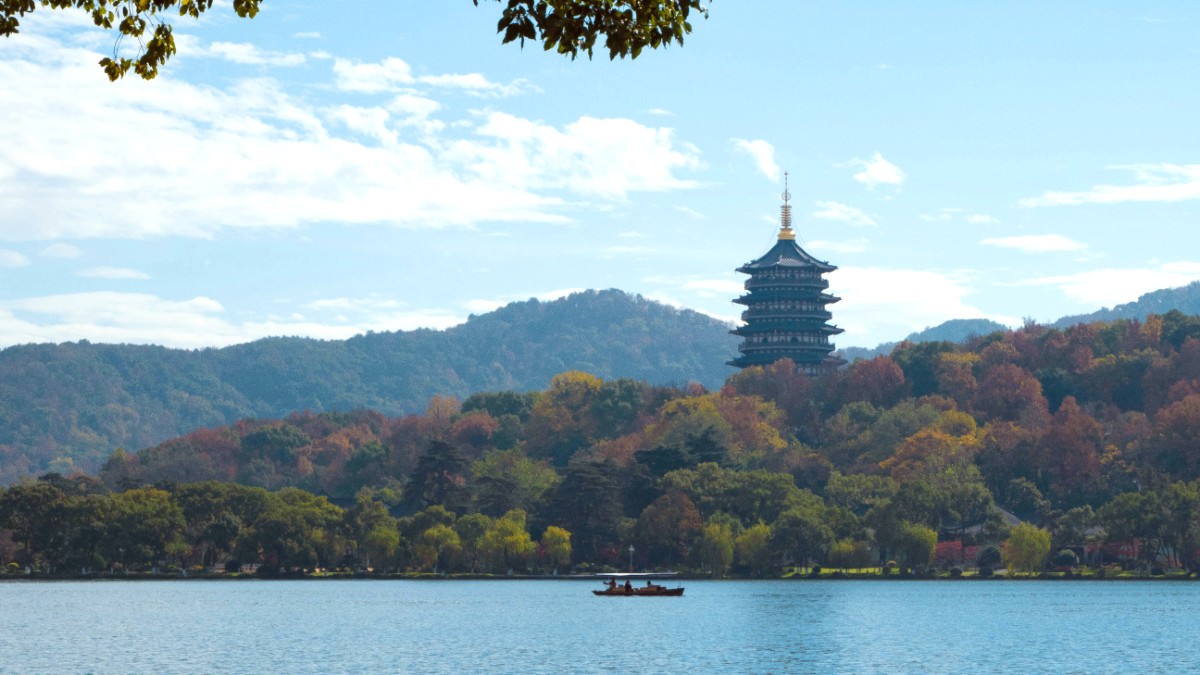
Zhejiang, China
The city experiences four distinct seasons, each offering an unique charm and different considerations for travelers.
Autumn (September to November) presents pleasant temperatures, typically between 15-28°C (59-82°F). Humidity lessens, and skies appear clearer. Many consider this the best time to visit Hangzhou, notably for the Mid-Autumn Festival and the blooming of osmanthus flowers, which fill the air with a sweet scent.
Typhoons rarely arrive in Hangzhou directly but can occur in the broader region during summer and early autumn. They bring heavy rain and strong winds. Monitor local weather forecasts when traveling during these months. Intense heat waves also occur in summer; travelers take precautions against heatstroke.
Ideal timing for specific activities: West Lake cruises are best in Spring and Autumn. Longjing tea harvesting happens in Spring (April-May). Osmanthus viewing occurs in Mid-Autumn (Sept-Oct). Photography benefits from clear skies in Autumn.
April-May (Spring) & Sept-Oct (Autumn)
Best weather, cultural festivals.
Higher prices, larger crowds, early booking needed.
March and November
Good weather, fewer crowds, potentially lower prices.
Transition months, late spring rains or early winter chill possible.
Dec-Feb (Winter) & June-Aug (Summer)
Lowest prices, fewest crowds, unique seasonal experiences.
Extreme temperatures (hot/humid summer, cold winter), higher chance of rain in summer.
Most foreign nationals need a visa to enter mainland China. Common visa types include L Visa (Tourist), M Visa (Business), and F Visa (Non-commercial Visit). Application occurs at a Chinese Embassy or Consulate General in your home country, or via a Chinese Visa Application Service Center (VisaHQ, IVisa). Start your application well in advance.
Hangzhou Xiaoshan International Airport (HGH) participates in China's 144-hour visa-free transit policy. Citizens of 53 countries (including USA, Canada, UK, Australia, most EU countries) can transit without a visa. To qualify, travelers possess a confirmed onward ticket to a third country or region within 144 hours. Remain within the specified transit zone (Zhejiang Province, Shanghai, and Jiangsu Province).
Valid for at least six months beyond your stay, with two blank visa pages.
Complete and signed form.
Recent, passport-style, color photo with a white background.
Round-trip flight tickets and hotel reservations.
Bank statements demonstrating sufficient funds.
The Chinese Yuan (CNY), also known as Renminbi (RMB), serves as China's official currency.
The exchange rate fluctuates (e.g., 1 USD is around 7.2 CNY, 1 EUR around 7.8 CNY). Check current rates online. Cash is less common now, notably in urban areas. Credit cards, especially UnionPay, are accepted in larger establishments. Mobile payment apps, mainly Alipay and WeChat Pay, dominate daily transactions. ATMs are widely available. Banks and major hotels offer currency exchange services.
These daily estimates exclude major flights to and from China.
Entrance fees for popular sites.
No specific health-related entry requirements are universally mandated for general entry to China. Travelers should consult their national health advisories for information on recommended routine vaccinations.
Consult your doctor or a travel clinic well before your trip for advice on routine vaccinations (e.g., MMR, Tdap, polio, influenza) and travel-specific vaccines like Hepatitis A, Hepatitis B, and Typhoid.
Rabies vaccination may be advised for extended time in rural areas or anticipated animal handling.
Major cities like Hangzhou have modern hospitals. Some offer "VIP" or international wards with English-speaking staff. Pharmacies are widely available for over-the-counter medications.
Hospitals like Zhejiang Provincial People's Hospital are modern facilities.
Bring prescription medications with documentation; local equivalents might differ.
Tap water in Hangzhou is generally not safe for direct consumption. Use bottled water for drinking and brushing teeth. Eat at reputable establishments.
Many hotels offer complimentary bottled water.
Avoid raw/undercooked foods, unpeeled fruits, and salads if you have a sensitive stomach.
Hangzhou generally presents as a very safe city, with low violent crime rates. Petty crime, like pickpocketing, can occur in crowded tourist areas.
City center and West Lake area are well-patrolled and safe.
Be wary of common tourist scams (e.g., "tea ceremony scams").
| Service | Number | Notes |
|---|---|---|
| Police | 110 | General emergencies |
| Ambulance | 120 | Medical emergencies |
| Fire | 119 | Fire emergencies |